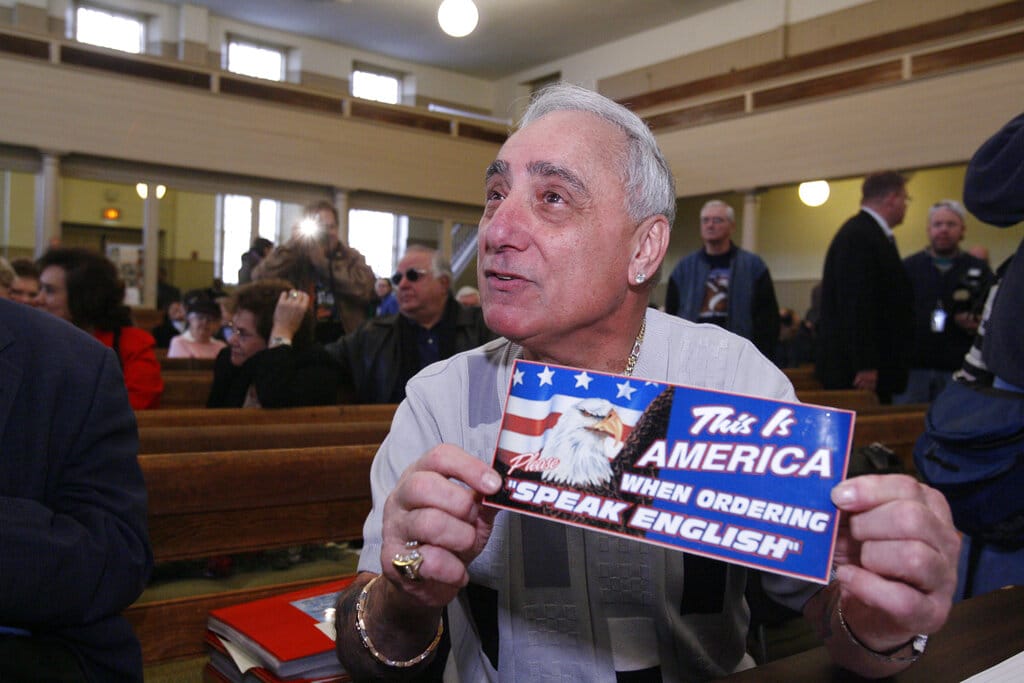Among the many orders President Donald Trump issued during the first 100 days of his second term was an order on March 1, 2025, that designated English as the official language of the United States.
Although many states, especially those in the South and the Great Plains, have already declared English the official language, prior legislative attempts by Congress to do so have failed. So have attempts to adopt a national constitutional amendment on the subject (Vile 2023, I: 192-93).
Opposition to such attempts stems from concerns that English-only laws could violate First Amendment protections for freedoms of speech and press and equal protection and due process provisions in the Fifth and 14th Amendments.
Trump says one language is needed for national unity
In Section 1 of Trump’s Executive Order 14224, he indicated that “From the founding of our Republic, English has been used as our national language.” Noting that both the Declaration of Independence and the U.S. Constitution were written in English, Trump’s order said, “A nationally designated language is the core of a unified and cohesive society, and the United States is strengthened by a citizenry that can freely exchange ideas in one shared language.”
The order posited that “a policy of encouraging the learning and adoption of our national language will make the United States a shared home and empower new citizens to achieve the American dream.” Trump described the order as recognizing and celebrating “the long tradition of multilingual American citizens who have learned English and passed it to their children for generations to come.”
Citing how one language promotes unity, Trump concluded, “It is in America’s best interest for the Federal Government to designate one – and only one – official language.” He touted this as streamlining communication, reinforcing “shared national values,” and creating “a more cohesive and efficient society.”
One issue is printing government information in other languages
The implications of the order remain to be worked out in practice. Section 3 specifically revokes Executive Order 13166 of August 11, 2000, which President Bill Clinton issued providing for “Improving Access to Services for Persons with Limited English Proficiency. Although revoking Clinton’s order, Trump indicated that his order neither “requires or directs any change in the services provided by any agency.”
“Agency heads are not required to amend, remove, or otherwise stop production of documents, products, or other services prepared or offered in languages other than English,” the order says. However, it also provided that “(t)he Attorney General shall rescind any policy guidance documents issued pursuant to Executive Order 13166 and provide updated guidance, consistent with applicable law.”
Taken in conjunction with Trump’s efforts to deport undocumented immigrants and his attacks on diversity, equity and inclusion initiatives, his order may well send “an unprecedented official signal” that those who speak other languages, like Spanish, are not welcome (Perlin 2025). One commentator noted that “freedom of speech means nothing if it does not mean the freedom to speak any of the world’s 7,000-plus languages” (Perlin 2015).
Title VI of the Civil Rights Act of 1964 and court decisions continue to require federal funding recipients to have access to services in their own language. Still, Trump’s order will undoubtedly add uncertainty to state and local governments receiving federal support for such services. (Hofstetter 2025).
John R. Vile is a political science professor and dean of the Honors College at Middle Tennessee State University.

